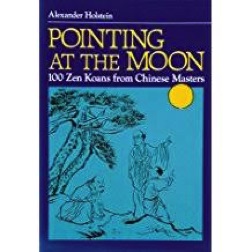Do Animals have Buddhanature ?
The Buddhanature is the highest state of life of any living being.
In the life of the individual, the Buddha-nature is the highest state of the human-nature.
It manifests in reality of the individual as being in perfect harmony with the truth of one's life, or the Dharma. For human beings, a conscious effort is needed to reach this fusion of one's personal life - with the Dharma (efforts involving study, practice and determination for self-improvement).
Animals also experience various states of life. It is possible for an animal to live a happy life consistent with its own nature, being in harmony with the environment. Animals can reach the highest state of their life - and can live in perfect consistency with the Law of nature.
Although animals have limitation in their capacity of mind, nonetheless animals experience the same spectrum of emotions as people do. They express sadness, fear, anger, tranquillity, joy, curiosity, love and compassion. When an animal lives in perfect balance and harmony with its function in life, this state is its Buddhanature, in terms of living with no suffering, and joyfully expressing of its function.
The Buddhanature is a state of life, like the states of love, joy and compassion - inherent within the entity of living being - it is not something "taught". Buddhahood is not the result of intelligence.
Many highly intelligent individuals ended in depression and misery in their life, while many ordinary individuals expressed profound state of enlightenment, reflected in valuable relationships and successful life (through contribution and creating value in their surroundings).
When a pet for example is in pain and sufferings, then people around it also worry and suffer, trying to help. This means that we cannot separate ourselves from the environment we live in, be it with plants or animals. We cannot be happy ourselves if our environment is suffering. Therefore the life of happiness and compassion, which is the highest state of animal's life, is inseparable from our own Buddhanature.
______________________________________
Zen literature reveals a fundamental misunderstanding of what Buddhanature means, and in many cases Buddhahood is equated with learning and intelligence.
The view that Buddhahood can be attained through intelligence was dismissed in the Lotus Sutra (Hoben Chapter), which starts by declaring (to the most intelligent disciple of the Buddha, Shariputra) - that Buddhahood is much deeper and higher than intelligence or learning.
The Lotus Sutra's perspective on the Buddhanature is that of
living in harmony and joy, fulfilling one's function in life. It is not about
acquiring a degree from school.
Zen: Yes and No
"A monk asked master Chao Chou “do dogs have the Buddha nature?”
“No” was the reply. ”
Why?” asked the disciple.
“Because of learning” replied the master.
Later, someone else asked Chao Chou the same question,
but the answer was “Yes”.
A full description of this master's "explanation" a comment on it appear on page 36 in Holstein’s book "Pointing at the Moon". Clearly, to say "No", then "Yes" - is an expression of confusion.
Zen treats the concept of Buddhanature as a product of “learning” and “intellectual thinking”. Needless to say, viewing the Buddhanature as “learning-based” (and not as “life - or heart-based”) - would naturally exclude most living beings from the field of Buddhahood. Many individuals - who are not necessarily highly intelligent or learnt - have nevertheless respect-worthy life and feelings, such as their inherent compassion (which does not require “learning”) and the capacity to offer others help and encouragement.
Failure of the mentioned Zen master to give an answer to the question about the Buddhanature in animals - this failure was justified by Holstein in his comment, explaining that animals have a barrier preventing them from reaching the highest state of their life, and this barrier is: their lack of “intellectual learning”. In a further view about Buddhanature in animals, Holstein ponders whether animals have ”pure morality” (the Four Morals, as he mentioned).
These bizarre comments by Holstein and others (about "morality" and "education") setting criteria of “intellectual learning” and “pure morality” of pets or wild animals - reveal Zen essential misunderstanding of what the state of Buddhanature is.
Buddhanature as the lifeforce
of the Dharma in all living beings
Plants, animals and people strive under various conditions to display their inherent potentials. All living entities are able to fully display their inherent potential to live in harmony with their environment to the fullest of their being.
The Buddhanature is the state of oneness of individual with the Dharma, the natural Law (being the original source of the energy of life in all beings). This fusion of the entity of a living being (animal or human) with its true nature - the Law of life - manifests in enjoying one's function in life, acting through harmonious relationships with one's environment and helping other around.
It is people’s ignorance and greed that reflect badly on animals and the environment. And it is people’s enlightenment that reflects positively on the lives of their animals and their environment.
For this reason, when people manifest their Buddhahood, animals will also live in the state of happiness and harmony with life, without having to change their nature of existence - or adopt Zen concept of “pure morality” and a degree in “learning” - as mentioned in Holstein's book.
Animals are entities of the same cosmic life as people, and in various circumstances they clearly express the same states of anger, sadness, compassion, love and happiness, and their way of living a harmonious natural life with joy - is simply their Buddhanature.
____________________________________________________
Author: Safwan Zabalawi (Darshams)
The Juvenile Mind of Bullying Zen Masters
